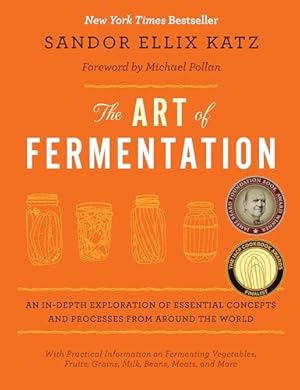Learn more
These promotions will be applied to this item:
Some promotions may be combined; others are not eligible to be combined with other offers. For details, please see the Terms & Conditions associated with these promotions.
Your Memberships & Subscriptions

Download the free Kindle app and start reading Kindle books instantly on your smartphone, tablet, or computer - no Kindle device required.
Read instantly on your browser with Kindle for Web.
Using your mobile phone camera - scan the code below and download the Kindle app.

The Arts of the Microbial World: Fermentation Science in Twentieth-Century Japan Kindle Edition
The Arts of the Microbial World explores the significance of fermentation phenomena, both as life processes and as technologies, in Japanese scientific culture. Victoria Lee’s careful study documents how Japanese scientists and skilled workers sought to use the microbe’s natural processes to create new products, from soy-sauce mold starters to MSG, vitamins to statins. In traditional brewing houses as well as in the food, fine chemical, and pharmaceutical industries across Japan, they showcased their ability to deal with the enormous sensitivity and variety of the microbial world.
Charting developments in fermentation science from the turn of the twentieth century, when Japan was an industrializing country on the periphery of the world economy, to 1980 when it had emerged as a global technological and economic power, Lee highlights the role of indigenous techniques in modern science as it took shape in Japan. In doing so, she reveals how knowledge of microbes lay at the heart of some of Japan’s most prominent technological breakthroughs in the global economy.
At a moment when twenty-first-century developments in the fields of antibiotic resistance, the microbiome, and green chemistry suggest that the traditional eradication-based approach to the microbial world is unsustainable, twentieth-century Japanese microbiology provides a new, broader vantage for understanding and managing microbial interactions with society.
- LanguageEnglish
- PublisherThe University of Chicago Press
- Publication dateDecember 1, 2021
- File size22.6 MB
Shop this series
See full series- Kindle Price:$48.97By placing your order, you're purchasing a license to the content and you agree to the Kindle Store Terms of Use.
- Kindle Price:$70.23By placing your order, you're purchasing a license to the content and you agree to the Kindle Store Terms of Use.
- Kindle Price:$112.70By placing your order, you're purchasing a license to the content and you agree to the Kindle Store Terms of Use.
- Kindle Price:$220.56By placing your order, you're purchasing a license to the content and you agree to the Kindle Store Terms of Use.
Shop this series
This option includes 3 books.
This option includes 5 books.
This option includes 10 books.
This option includes 20 books.
Customers who bought this item also bought
Editorial Reviews
Review
"The Arts of the Microbial World is essential reading for anyone interested in the history of the industrial food system. ― Isis
"In The Arts of the Microbial World, Lee explores how Japanese scientists treated microbes not as threats, but as gifts, from which they conjured new foods, drinks, drugs, fuels, and tastes. The result is a thrilling and surprising new history of fermentation biology that offers a nuanced counterpoint to western, gene-centric histories. Wonderfully written and brilliantly researched, this is compelling and exciting work." -- Christopher Otter, Ohio State University
"In this brilliant tour de force, Lee orchestrates science, politics, and production to show how microbes—and the understanding of microbes—shaped Japan’s distinctive modernity. If you’ve ever eaten soy sauce or drunk sake, you’re the beneficiary of age-old fermentation practices. This deep-rooted knowledge, based on the insight that life is fermentation, played a vital role in the twentieth-century developments that put Japan at the forefront of modern medicine, food processing, and environmental understanding. This nuanced history demonstrates that although scientific problems may be universal, scientific practices are subtly shaped by culture and politics." -- Julia Adeney Thomas, coauthor of The Anthropocene: A Multidisciplinary Approach
"Lee successfully pursues a sustained argument that remains integrated and coherent even as she explores its varied instantiations in different topics, times, and locations. The originality of the book lies not only in providing a history of Japanese fermentation science in the twentieth century in its institutional, economic, and cultural dimensions, but especially in demonstrating the continuing importance of an indigenous craft tradition in shaping the twentieth-century field. In doing so she convincingly shows the inadequacy of interpreting Japanese fermentation science as simply a case of technology transfer." -- John Lesch, University of California, Berkeley
About the Author
Product details
- ASIN : B09KYJL7L3
- Publisher : The University of Chicago Press (December 1, 2021)
- Publication date : December 1, 2021
- Language : English
- File size : 22.6 MB
- Text-to-Speech : Enabled
- Screen Reader : Supported
- Enhanced typesetting : Enabled
- X-Ray : Not Enabled
- Word Wise : Not Enabled
- Print length : 333 pages
- Best Sellers Rank: #1,387,835 in Kindle Store (See Top 100 in Kindle Store)
- #99 in Microbiology (Kindle Store)
- #110 in History of Central Asia
- #837 in Microbiology (Books)
- Customer Reviews:
About the author

Discover more of the author’s books, see similar authors, read book recommendations and more.
Customer reviews
- 5 star4 star3 star2 star1 star5 star100%0%0%0%0%100%
- 5 star4 star3 star2 star1 star4 star100%0%0%0%0%0%
- 5 star4 star3 star2 star1 star3 star100%0%0%0%0%0%
- 5 star4 star3 star2 star1 star2 star100%0%0%0%0%0%
- 5 star4 star3 star2 star1 star1 star100%0%0%0%0%0%
Customer Reviews, including Product Star Ratings help customers to learn more about the product and decide whether it is the right product for them.
To calculate the overall star rating and percentage breakdown by star, we don’t use a simple average. Instead, our system considers things like how recent a review is and if the reviewer bought the item on Amazon. It also analyzed reviews to verify trustworthiness.
Learn more how customers reviews work on Amazon












![Japanese Soul Cooking: Ramen, Tonkatsu, Tempura, and More from the Streets and Kitchens of Tokyo and Beyond [A Cookbook]](https://m.media-amazon.com/images/I/61r7jw0IQCL._UX300undefined_.jpg)







![Manresa: An Edible Reflection [A Cookbook]](https://images-na.ssl-images-amazon.com/images/I/A11ilYAeBxL._AC_UL140_SR140,140_.jpg)
